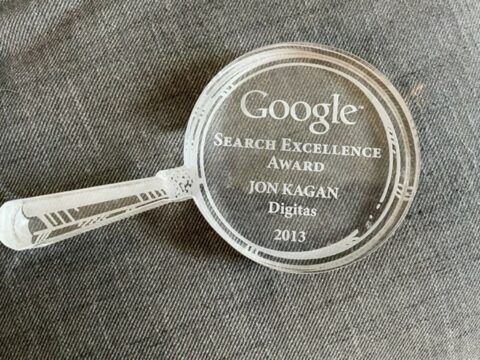Hello, my fellow search industry friends.
I hope this article can help distract you for a few minutes and give you some respite while reminding you that not all elements of your search engine marketing (SEM) accounts are the same and thus need different measurements.
For those that watch, follow, and/or troll my Twitter account, you’ve seen me on #ppcchat bashing things like Pmax, Auto-Apply Recommendations, and Google Analytics 4 (GA4).
(That’s in addition to my usual rants about the New York Jets and social commentary on the Real Housewives franchises.)
But after 17+ years in the SEM industry, I can no longer be silent about a topic that has been bugging me for a long time: being able to identify reputable SEM marketers vs. the dime-a-dozen hacks that also exist.
Full disclosure: I am not a “guru” (I truly hate that term), nor am I the best thing since sliced bread in the SEM industry.
But I’ve been around long enough to identify what it takes to build a great SEM team while also identifying those who likely lack the skills and might cause you more pain than they will help you.
“But Jon, why should I listen to you?”
Well, what makes me qualified to tell you what you should be looking for in an SEM team (or even just an individual) is subjective.
I feel somewhat qualified to provide insight, having worked in search marketing for 65% of the industry’s existence (as an independent consultant and at some of the biggest agencies in the world). I’ve presented at industry conferences, written articles (like the one you’re reading now), and even have some awards (even a trophy, see the 9-year-old one below).
-
 Image from author, August 2022
Image from author, August 2022
When I first entered the industry as an intern (before I was hired full-time in 2005), the number of agencies across the U.S. doing this type of work (and publicizing it) was fewer than 50.
In 2022, in the small Connecticut city where I live, there are at least eight agencies, multiple in-house operations, and more than a dozen freelancers/consultants.
So, the demand has risen, as have the skillsets. And with it, so has the number of operations/folks in the industry doing the bare minimum (or even less).
What Kind Of SEM Person Should I Look For?
Depending on your situation, there are several variables here. Typically, you go one of three routes (there are other types as well, but much rarer), with overlap and differences between them.
- In-House: Company/business, W2 employee who runs the SEM program within the confines of the company itself.
- Freelancer/Consultant: An individual who will run SEM programs for a company but is not considered an employee. Sometimes a 1099 employee (or just an individual you pay out of pocket, no judgment here).
- Agency: A standalone company that offers marketing services contracted out to run an SEM business for a company.
Once you identify which of the three you are hiring for, you must decide what level of experience you need (in years, not “trial by fire” experience, though that should also be taken into account).
Entry Level
Typically fresh out of school/college, no experience within the industry.
Important: If you’re looking for a freelancer or consultant, never hire someone at this level.
Only tap into these if you’re building an in-house team or building up your agency team.
Junior Level
Some experience, usually under two years of hands-on work. This is likely their second or third gig since getting into the industry.
Disclaimer: I don’t recommend folks hiring freelancers with such little experience. That said, there are occasionally some needles in the haystack, but they are rare.
Once again, I only recommend hiring this level if you’re building an in-house team or building up your agency team.
Mid Level
This usually represents a wide range of experience – anywhere from 2-10 years – with the majority of it being hands-on.
Note: These are often good hires regardless of what operation you are in, and typically, they have the most hands-on experience at this point in their career.
Senior Level
This label often gets applied to individuals in the space for 8+ years. Most of their career to this point is hands-on, but they often give great strategy recommendations as well.
Note: A great hire for any operation, but truly prime for freelancers/consultants.
Veteran Level
Truly the saltiest bunch in the space. I’d say this typically starts at 12+ years in the industry, and these folks have seen some things.
Note: Great hire for any operation. Likely to be the most expensive freelancers/consultants, but everyone should be able to have some interaction with them.
What Skillsets Should They Have If I Am Building Up A Team/Operation?
Once again, this has several variables to it. But here are the things you should know (not applicable for freelancers/consultants):
Having a college degree is nice but not necessary in this day and age.
If you do require a degree, aim for those with one of the following: Marketing, Management, Digital Advertising, Finance, Economics, Data Science, or Math.
Excel Skills
Anyone who wants to work with or for you must, at a bare minimum, know how to do a VLookup, Pivot Table, =SUM, =LEN, and Concatenate. Conditional formatting is a plus.
If you’re an agency or in-house, and they can’t do these, then they likely aren’t for you.
For anyone looking to build up their skills, I recommend looking into Maven Analytics: great analytics and Excel education operation run by an Excel wizard named Chris Dutton.
Understands How To Balance A Checkbook
This sounds unrelated and weird, but if you can’t correctly budget a checkbook, then you can’t properly pace an ad budget.
Ability To Think Outside The Box
You may only hire them for SEM, but they should be able to think about how it impacts and is impacted by other media and analytics – and how that insight can be helpful to one another.
Organized
Someone who shows they are adept at note-taking and/or project management.
Humble
Having someone confident is great, but having someone with an ego will create problems for you.
Certifications
They are free to obtain, and someone showing they have at least the search certificate from Google and Bing (I still refuse to call it Microsoft) is great.
It already helps reduce liability for you, as it shows they’ve taken the basic training at the very least.
Cross-Media Skill Sets Are A Major Plus
Paid social and self-serve programmatic are very similar to SEM; if someone knows these, they often make good skillset hires.
If I Am Hiring An Agency Or A Freelancer, What Should I Look For (Or Avoid)?
Part of it really depends on your business size and type, but here is some solid guidance: Make sure the team/individuals working on your business have up-to-date certifications in search at least (analytics, video, display, and Facebook are also great).
If an agency pushes that they are certified beyond just a note on their website, then buyer beware: these are a “you should at the very least have this” type of thing, not a selling point.
Freelancers and consultants should have them, but you can be more lenient if they tout them vs. an agency.
Having certifications does not make you the best operation out there, but if an agency or freelancer doesn’t have them, it tells you that they have failed to do the bare minimum – and their knowledge may be questioned.
If an agency (and occasionally a freelancer) is a Bing Elite or Select Partner and/or a Google Premier Partner (rare to have a Bing one without a Google one), it is a plus.
These operations will have more direct access to dedicated search engine reps and other helpful perks like testing betas.
Single-person consultants and freelancers usually do not qualify for these. It isn’t a knock against them, but it is a plus if they do have one.
Consider their onboarding approach. This should be a 30/60/90-day game plan and delivered to you when they pitch you. If they don’t have one, then accountability quickly goes out the window,
Check references.
It may seem antiquated, but if you’re going to pay a lot of money to an operation to manage your advertising funds, you want to ensure they have current or prior satisfied customers.
Some agencies over the years were just hack operations; those who hired them never checked references and now see no return for their payment.
It should go without saying, but people fall for it: Avoid operations or individuals who promise the world at a low price without logic or justification, or if it sounds too good to be true.
Over the years, more than a few shops have done that, from overpromising and underdelivering to lying and misrepresenting themselves. More than a few have been caught, sued, and/or faced federal charges.
Avoid any operation that is not open about or willing to share its start-up and ongoing QA process.
Things happen in this industry; a reactive and ongoing proactive QA process will save headaches and money. If a shop is not open to sharing theirs, I would steer clear.
This is our SEM QA doc. If you want to see the full one, email/tweet me, and I’ll gladly share.
If I Am Hiring In-House, What Should I Look For Or Avoid?
For in-house operations, it ultimately comes down to the level of an individual you want.
For entry-level, the requirements are low. Just make sure they can:
- Take feedback.
- Have a good attitude.
- Lack an ego.
- Can do Excel.
If you’re hiring for a level above that, you’ll want to look for:
- Someone who stays put for a bit and isn’t job hopping (not applicable to those in the junior level). If they have hard-to-explain reasons for frequent job switches, putting effort into onboarding them could easily be lost if they get bored or frustrated.
- Those that are not chasing the dollar. This is fairly straightforward.
- Extensive freelancer/consultant or agency experience, say at least four years. These folks have been through the trenches, working solo or at an agency. If you can get someone with this experience, they are usually great long-term employees with great hard and soft skill sets. Be prepared to pay a premium for them.
- Those with extensive “hands-on keyboard” experience. Even for a senior or veteran level, you want to know they could confidently take the reins and run things in a pinch.
What Red Flags Should I Look Out For?
The red flags of major avoidance are growing every day.
But where to find them and/or how to identify them gets trickier and will take some of your own homework. Some of these are subjective, but you’ll get the point:
- Anyone who calls themselves a “guru.” This is more of a personal issue, but making that type of bold statement usually comes with a bit of ego.
- Anyone who struggles to decipher the differences and strategies between SEM and SEO. They often prey on small brands or unknowing folks.
- Anyone who won’t give you access to your accounts. Confirm this in writing upfront; if you are paying the bill directly, you want admin access.
- There are a lot of groups for SEM on social media, and many of them have individuals who make vague and/or unrealistic statements to try and get new clients. For example, “I increased ROI 10,000% with one secret move” or showing numbers without the big picture. These operations are often swindlers.
- Any operation that plays up their Google Ads skillset, but not their Bing ones. The platforms are similar, and any reputable advertiser that does this for U.S. audiences will know both platforms. Often, some folks say they’ve never done it because no one uses Bing. Those are the people to walk away from immediately.
- Operations/individuals who undercut their rates to an obscene level: You get what you pay for.
- Any operation that won’t share a report, a strategy plan, or a change log.
There are many more, but these are the most common issues I run into within the space.
Billing Methods
There are various billing methods today; the three most common are commission, hourly/FTE, and retainer.
- Those that do commission: If their focus is on how much you spend vs. how you perform, that is a red flag. Budgets get cut all the time – if they don’t like that, walk away.
- Hourly/FTE: If they don’t give you an hour’s estimate upfront and only do it at invoicing, walk away; they will steal time.
- Retainer: If they aren’t giving you a breakdown of how they spend their time, or the retainer exceeds 18% of the media spend, and you don’t see changes in the change log – walk away.
So, What Does This All Mean?
Now that I’ve legitimately scared you, remember that while there are some complete hacks within this industry, there are also many amazing people.
It is all about researching who you hire rather than blindly saying yes to a price.
And please, make sure they know Excel.
More resources:
- SEM vs. SEO: What’s The Difference?
- 6 SEM Best Practices Growth Marketers Need To Master
- Is Your PPC Agency Wasting Your Budget?
Featured Image: fizkes/Shutterstock






![AI Overviews: We Reverse-Engineered Them So You Don't Have To [+ What You Need To Do Next]](https://www.searchenginejournal.com/wp-content/uploads/2025/04/sidebar1x-455.png)